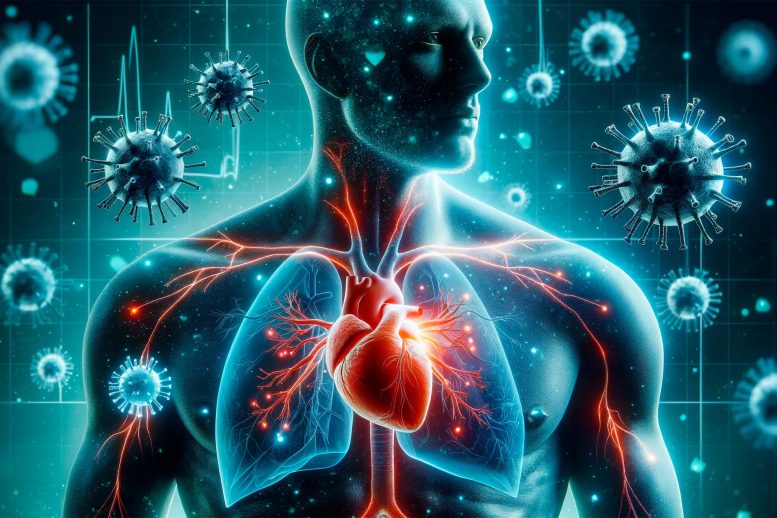
NIH-funded research reveals that SARS-CoV-2 can directly infect coronary artery tissues, possibly explaining increased heart attack and stroke risks after COVID-19.
- SARS-CoV-2 infected coronary arteries and increased inflammation in atherosclerotic plaques.
- The findings suggest how COVID-19 could increase the risk of heart attack and stroke.
COVID-19 is known to increase the risk of heart attack and stroke. The intense inflammation that occurs throughout the body in severe cases likely contributes to this increased risk. But it wasn’t clear whether SARS-CoV-2, the virus that causes COVID-19, also affects blood vessels directly.
Recent Findings on Blood Vessel Infection
To find out, an NIH-funded research team, led by Dr. Chiara Giannarelli at New York University School of Medicine, analyzed coronary artery tissue samples from eight people who died of COVID-19 between May 2020 and May 2021. Results were recently published in Nature Cardiovascular Research.
The team found SARS-CoV-2 viral RNA in coronary artery tissue from all patients. They found more viral RNA in the arterial walls than in the surrounding fat tissue. Many of the infected cells were macrophages, a type of white blood cell that ingests pathogens. Samples with more macrophages had more viral RNA.
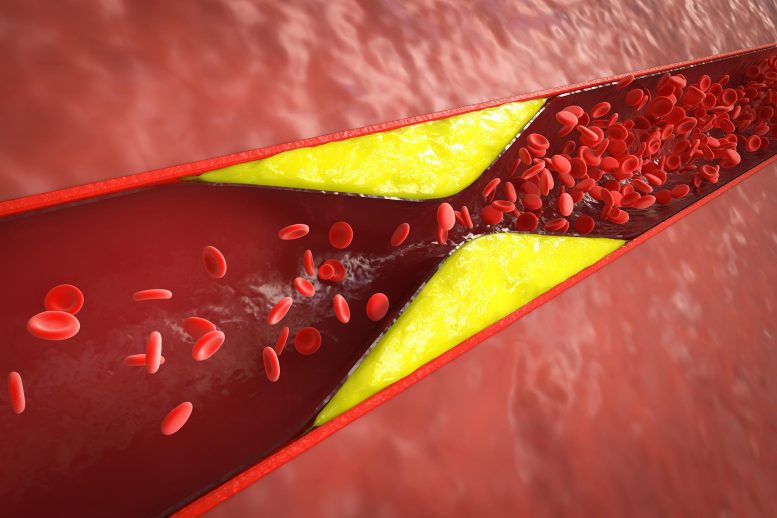
Atherosclerosis is a condition where arteries become narrowed due to plaque buildup, consisting of fat, cholesterol, and other substances. This narrowing can restrict blood flow, and if plaque breaks open, it can cause blood clots, leading to heart attacks or strokes. Factors like high blood pressure and smoking heighten the risk.
Linking SARS-CoV-2 With Atherosclerosis
Macrophages also help remove cholesterol from blood vessels. When macrophages become laden with cholesterol, they are known as foam cells. Accumulation of foam cells within arteries forms plaques that are a hallmark of atherosclerosis. The team confirmed that SARS-CoV-2 could infect human macrophages and foam cells in a petri dish. The foam cells were much more susceptible to infection than the macrophages. This could explain why people with atherosclerosis are more vulnerable to COVID-19.
In both cell types, infection depended on a protein on the surface of the cells called neuropilin. Turning off the gene for neuropilin in these cells reduced infection. So did blocking the virus from binding to neuropilin.
Infection triggered several inflammatory pathways in macrophages and foam cells. The cells also released molecules that are known to contribute to heart attacks and strokes. In arterial plaques that had been surgically removed from patients, the researchers saw an inflammatory response to SARS-CoV-2 infection like that seen in the cultured cells.
Implications and Future Research
The findings suggest that SARS-CoV-2 may amplify the risk of heart attacks and stroke by infecting artery wall tissue, including associated macrophages. This provokes inflammation in atherosclerotic plaques, which could lead to heart attack or stroke.
“These results shed light onto a possible connection between preexisting heart issues and Long COV
\ID symptoms,” Giannarelli says. “It appears that the immune cells most involved in atherosclerosis may serve as a reservoir for the virus, giving it the opportunity to persist in the body over time.”
“Since the early days of the pandemic, we have known that people who had COVID-19 have an increased risk for cardiovascular disease or stroke up to one year after infection,” says Dr. Michelle Olive of NIH’s National Heart, Lung, and Blood Institute. “We believe we have uncovered one of the reasons why.”
Going forward, the authors plan to further investigate the potential link between infection of the arteries and Long COVID. They also aim to see if their results also hold true for newer SARS-CoV-2 variants.
For more on this research, see COVID-19 Infects Coronary Arteries and Increases Plaque Inflammation.
Funding: NIH’s National Heart, Lung, and Blood Institute (NHLBI), National Center for Advancing Translational Sciences (NCATS), National Institute of Allergy and Infectious Diseases (NIAID), and National Institute of Diabetes and Digestive and Kidney Diseases (NIDDK); American Heart Association; Chan Zuckerberg Initiative; New York University.

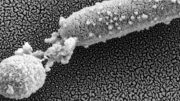
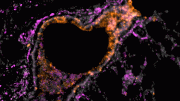



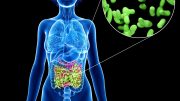


Be the first to comment on "Heart Attack Alert: COVID-19’s Direct Assault on Coronary Arteries"